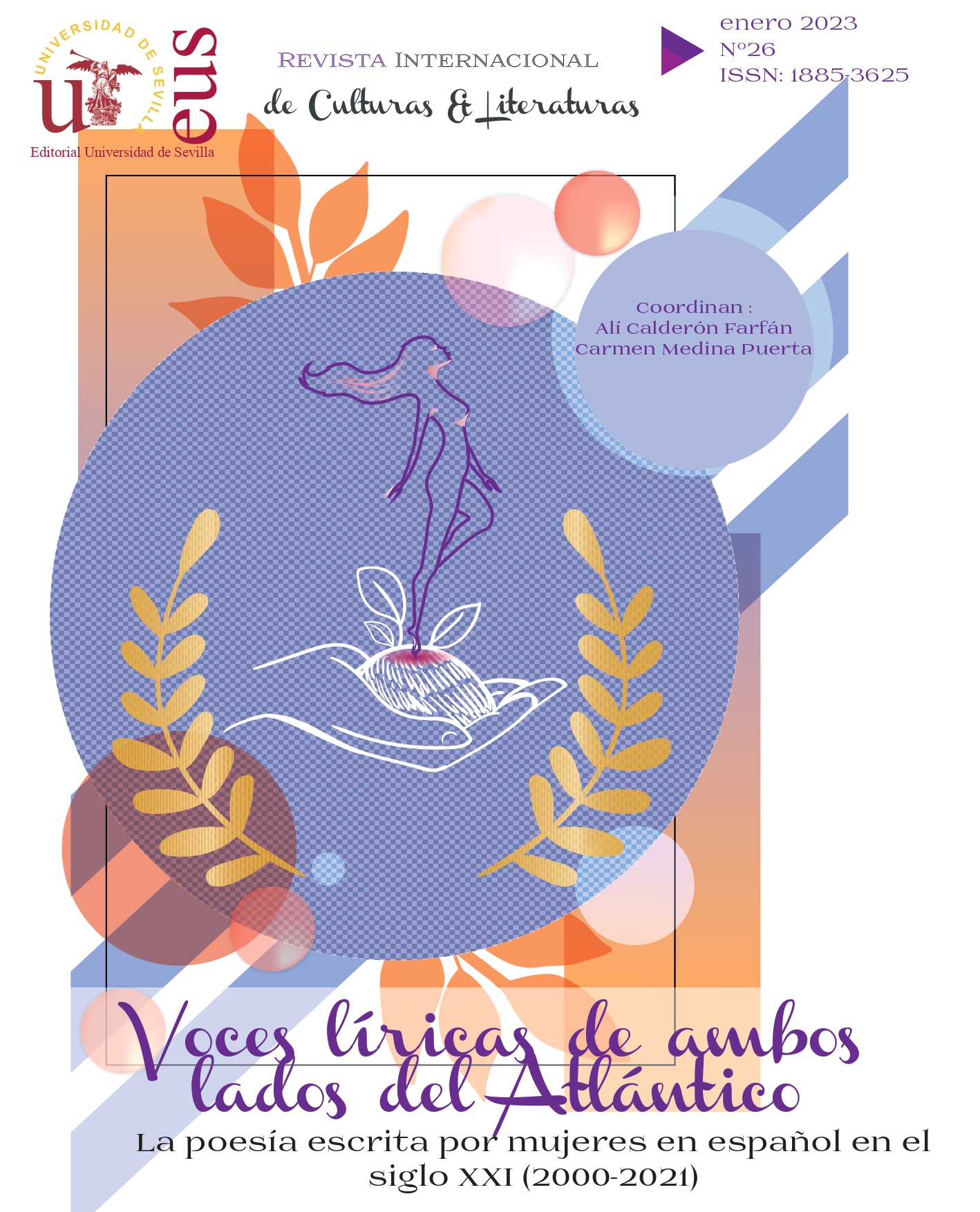UNA POESÍA KIDULT: UN ACERCAMIENTO A LA OBRA DE ELENA MEDEL
DOI:
https://doi.org/10.12795/RICL.2023.i26.08Palabras clave:
Medel, crisis, poesía KidultResumen
El propósito de este trabajo es analizar la obra poética de la escritora española Elena Medel a partir de una noción, como la de kidult, recientemente popularizada por la antropología para problematizar el alto grado de complejidad adquirido por los pasajes de edad en el contexto posmoderno y neoliberal del siglo XXI. Será precisamente a partir de esta mirada, que yuxtapone y borronea los límites entre la niñez (kid) y la adultez (adult), que abordaremos el ethos infantil presente en toda su producción. El artículo propondrá, de este modo, un recorrido de la obra poética de Medel que abordará las diferentes flexiones adoptadas por lo kidult: desde la propuesta adolescente de Mi primer bikini (2002), pasando por las formas del duelo y la infancia en Tara (2006), hasta la problematización acceso del acceso a la adultez estará atravesado por el contexto de crisis económica española en Chatterton (2014).
Descargas
Citas
BARBER, Benjamin R. (2008). Consumed: How markets corrupt children, infantilize adults, and swallow citizens whole. Nueva York y Londres: WW Norton & Company.
BERNARDINI, Jacopo (2014). “The Infantilization of the Postmodern Adult and the Figure of Kidult”. Postmodern Openings/Deschideri Postmoderne, 5(2), pp. 39-55.
CALLICÓ CANTALEJO, Gloria y CELMA SANZ, Jordi (2016). “El nuevo fetichismo del Internet de las cosas en la sociedad kidult”. Aloma: Revista de Psicologia, Ciències de l’Educació i de l’Esport, 34(2), pp. 77-86.
DE CERTEAU, MICHEL. (2000) La invención de lo cotidiano. 1 Artes de hacer. México: Universidad Iberoamericana.
Cross, G. S. (2010). Men to boys: The making of modern immaturity. Columbia: Columbia University Press.
FISHER, M. (2020). Realismo capitalista: ¿No hay alternativa? Buenos Aires: Caja Negra Editora.
GENTILE, Alessandro (2010). “De vuelta al nido en tiempos de crisis. Los boomerang kids españoles”. Revista de estudios de juventud, 90(10), pp.181-203.
MEDEL, Elena (2015). Un día negro en una casa de mentira (1998-2014). Madrid: Visor Libros.
MEDEL, Elena (21 de octubre 2020). “Elena Medel: ´Estoy acostumbrada a la autoexplotación y el cansancio, pero no solo soy yo, es todo mi círculo´“, entrevistada por F. Miró. El diario. Recuperado de https://www.eldiario.es/cultura/libros/elena-medel-acostumbrada-autoexplotacion-cansancio-no-circulo_1_6303796.html [Fecha de consulta: 10/08/2022]
MORALES, C. (2014, abril 16). Del fracaso y sus versos de luz. El País. Recuperado de https://elpais.com/cultura/2014/03/18/actualidad/1395165469_719958.html [Fecha de consulta: 10/08/2022]
RODRÍGUEZ MARCOS, J. (2020, octubre 2). Elena Medel: “¿Qué quieren los jóvenes? Llegar a fin de mes”. El País. Recuperado de https://elpais.com/cultura/2020/10/02/babelia/1601657509_960131.html [Fecha de consulta: 10/08/2022]
SCARANO, Laura (2021). “Elena Medel: ´Hablo el idioma de las mujeres que me fueron´”. Revista Caracol, 21, pp. 74-99.

